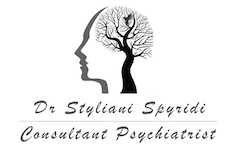
Integrating Acupuncture into Psychiatry: Scientific Insights into Its Impact on Brain Function and Mental Health
As a psychiatrist practicing in Limassol, Cyprus, I embrace a holistic approach to mental health, combining traditional psychiatric methods with complementary therapies. A recent discussion with a colleague specializing in acupuncture for mental health inspired me to delve deeper into how this ancient practice can influence brain function and support psychiatric treatment.
1. Acupuncture and Neurochemistry: Modulating Brain Chemicals
Acupuncture has been shown to influence the levels of neurotransmitters such as serotonin, dopamine, GABA, and norepinephrine—chemicals crucial for mood regulation, anxiety control, and cognitive function. Functional MRI studies have demonstrated that acupuncture can modulate activity in the limbic system, including areas like the amygdala and hippocampus, which are integral to emotional processing and memory.
Source:
Title: “The effects of acupuncture on brain activity in the treatment of major depressive disorder: A functional magnetic resonance imaging study”
Journal: Journal of Affective Disorders
Publication Date: 2000
Link: https://pubmed.ncbi.nlm.nih.gov/10643726/
2. Acupuncture and Brain Function: Enhancing Neuroplasticity
Beyond chemical modulation, acupuncture may enhance neuroplasticity—the brain’s ability to reorganize itself by forming new neural connections. Research indicates that acupuncture can activate pathways that promote neuroplasticity, potentially aiding in the recovery of brain functions affected by mental health disorders.
Source:
Title: “Acupuncture and neuroplasticity: A review of the literature”
Journal: Journal of Alternative and Complementary Medicine
Publication Date: 2013
Link: https://www.ncbi.nlm.nih.gov/pmc/articles/PMC3754836/
3. Acupuncture and Neuroinflammation: Reducing Inflammatory Markers
Chronic inflammation in the brain has been linked to various psychiatric conditions. Studies have found that acupuncture can reduce levels of pro-inflammatory cytokines such as IL-6 and TNF-α, which are often elevated in individuals with chronic pain and stress-related disorders. This anti-inflammatory effect suggests that acupuncture may play a role in mitigating neuroinflammation associated with mental health conditions.
Sources:
Title: “The effect of acupuncture on proinflammatory cytokine production in patients with chronic headache: a preliminary report”
Journal: Journal of Alternative and Complementary Medicine
Publication Date: 2004
Link: https://pubmed.ncbi.nlm.nih.gov/14992546/
Title: “Electroacupuncture exerts anti-inflammatory effects in cerebral ischemia-reperfusion injured rats via suppression of the TLR4/NF-κB pathway”
Journal: International Journal of Molecular Medicine
Publication Date: 2012
Link: https://www.spandidos-publications.com/10.3892/ijmm.2012.1184
4. Acupuncture and the Stress Response: Modulating the HPA Axis
The hypothalamic-pituitary-adrenal (HPA) axis is a central stress response system. Dysregulation of this system is implicated in anxiety and depression. Acupuncture has been shown to influence the HPA axis by modulating levels of stress hormones like cortisol. For instance, a study involving rats demonstrated that acupuncture at specific points could reduce stress-induced behaviors and lower cortisol levels, suggesting a potential mechanism for its therapeutic effects.
Sources:
Title: “Acupuncture blocks cold stress-induced increases in the hypothalamus–pituitary–adrenal axis in the rat”
Journal: Journal of Endocrinology
Publication Date: 2013
Link: https://joe.bioscientifica.com/view/journals/joe/217/1/95.xml
Title: “Effects of acupuncture on hypothalamic-pituitary-adrenal axis: Current status and future perspectives”
Journal: Journal of Integrative Medicine
Publication Date: 2024
Link: https://pubmed.ncbi.nlm.nih.gov/38955651/
5. Acupuncture in Psychiatric Practice: A Complementary Approach
Integrating acupuncture into psychiatric care offers a complementary strategy for managing mental health disorders. While acupuncture should not replace conventional treatments, it may serve as an adjunctive therapy, potentially enhancing outcomes for patients with conditions such as anxiety, depression, and stress-related disorders.
#AcupunctureInPsychiatry
#Neurochemistry
#Neuroinflammation
#BrainFunction
#MentalHealthTreatment
#IntegrativePsychiatry
#FunctionalMedicine
#StressResponse
#HPAaxis
#PsychiatricCare
